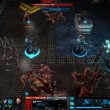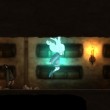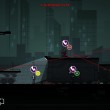Metro Redux Review
Some games are about people--their struggles, their hopes, their dreams, their powers. Other games are about systems and logic. Blocks fall from above and you maneuver them into place, you twist dials into the correct pattern, or you collect enough currency until you can afford a stronger helmet or a sharper sword. Then there are the games about place. The Chronicles of Riddick, for instance, is less about Richard Riddick and his throaty threats than it is about Butcher Bay, a stifling prison that serves as a parched planet's only bastion of intelligent life. Assassin's Creed features plentiful characters--heroes, lovers, and betrayers among them--but the cities of Damascus and Jerusalem, their temples and mosques, the way the golden spires reflect the sun, are the centerpieces of the historical journey.
And so it is with Metro Redux, a collection of two melancholy games, each of them crushed by the weight of a ruined Earth with little hope to tender. Both adventures allow you time to choke on their dusty, irradiated air, time in which you simply are, time that makes you wonder how the survivors of humankind's nuclear error find the will to carry on. In both Metro: Last Light and in the refashioned Metro 2033, there is more dread in the deafening silence than there is in the retort of a shotgun. In the metro tunnels beneath Moscow, you scavenge for ammo to use as currency as well as munitions, burn away cobwebs with your lighter, and search for gas masks that allow you to breathe the perilous air should you approach the surface. There are pockets of humanity within these depths, and while they provide you some companionship and even an occasional shimmer of joy, even outposts prove perilous. You might weather the factional turbulence that pits brother against brother, but the emotional fog of desperation still proves noxious.
It's possible you may have filled the role of series hero Artyom and trudged through this thick misery before. Returning to such a dismal place may not sound too appealing, but there's something to be learned about the resilience of humankind down there, where mutants and other grotesqueries lurk. Metro 2033 most benefits from this new iteration, practically feeling like a new game given the newly structured storytelling and a visual upgrade that raises it close to the bar Metro: Last Light later set. Given the recency of Last Light, your memories of 2033 may be colored by the more recent game, which featured far better lighting and a more sensible user interface, but a side-by-side comparison of the original and the remastered 2033 is striking.
Consider, for instance, the first moment you emerge into the Russian winter. The original game suggested the frigidity in part by way of crystalline fractals upon your gas mask; in the Redux version, a full snow is underway, and the sense is less of a brisk chill than it is of a piercing bite. When a massive door opens and an explorer returns from his excursion, you now see the passage behind him rather than a murky suggestion of it. Character models are brand-new, replacing the dead-eyed originals with faces and bodies that look somewhat more natural, if still a bit stiff. In some cases, I prefer the original vision to its replacement; I still find vanilla 2033's nosalises more terrifying than their newer models, and hunters that once donned alien-looking gas masks with night-vision goggles attached sometimes wear more mundane masks now. But once was a high-contrast haze now looks more natural, objects casting proper shadows and beams of light no longer washing away the finer details.
You might weather the factional turbulence that pits brother against brother, but the emotional fog of desperation still proves noxious.
You'd be harder pressed to find sweeping visual changes in Redux's version of Metro: Last Light; it is the standard to which 2033 has been raised. The more meaningful difference here is the ability to apply 2033's more stringent supplies of gas masks and ammunition, thus addressing a shift in difficulty that the original's most strident fans bemoaned. Conversely, should you prefer Last Light's original balancing, you can apply it to 2033. In either case, choosing similar levels of challenge between the two games helps smooth their differences, making playing both games in succession a heartrending and rewarding experience that feels less like playing a game and its sequel, and more like playing a single game that has been split into two units.
The differences between Last Light's and 2033's innate levels of difficulty aren't so vast that they evoke different emotions. Instead, the difference is in degrees--degrees of tension, degrees of fright. However you choose to play, the tunnels and the surface above are both fraught with dangers, dangers that feel all the more harrowing when you confront them after long stretches of only seeing signs of them and being warned of their presence. In both games, I remember the first time a winged demon soared in from above, grabbed me with its fearsome talons, and dropped me to the ground. It was terrifying, this sudden loss of control, the sight of the scorched earth beneath me, the demon drilling its screeches into my skull. I knew these moments were coming but I was still left breathless each time. And when the creature dropped me into the poisonous water below, I grimaced as I caught a glimpse of another victim's visage before succumbing to death.
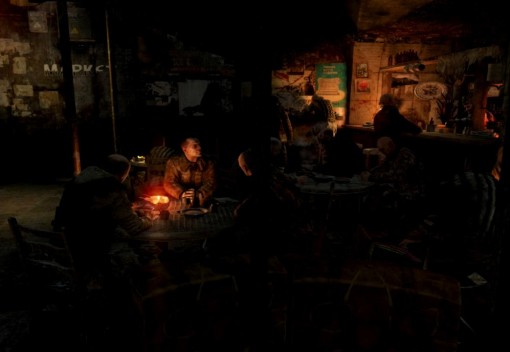
However you choose to play, the tunnels and the surface above are both fraught with dangers, dangers that feel all the more harrowing when you confront them after long stretches of only seeing signs of them and being warned of their presence.
Clearly, Metro Redux owes as much of a debt to survival horror games as it does to shooters, no surprise given how so many members of its development team lent their talents to the S.T.A.L.K.E.R. series. You spend as much time if not more soaking in the darkness as you do firing a weapon, and even when violence is imminent, you can approach many situations as a stealthy hunter. Metro: Last Light's levels are more carefully structured than 2033's, giving AI-controlled Nazis and Communists room to spread out and flank, whereas a few too many of Metro 2033's levels squeeze the action into chokepoints that can give the game a smidgen of a shooting gallery feel. I enjoy the silent lurking, sneaking from one light source to another to plunge the area into darkness and then knifing soldiers one by one. When guns begin to blaze, it is the Valve rifle with reflex sight that I am most drawn to when at medium range, thanks to its powerful blast and the way headshots land with such drama. Up close, each shotgun proves a vital tool of brutality. The weapons and enhancements introduced in Metro: Last Light are available in Redux's version of 2033, again making this package feel like a single cohesive experience.
Whether or not the AI is aware of your presence, it doesn't go out of its way to prove itself resourceful. Once on alert, enemies are aware of potential danger but not of each other, allowing you to pick one off after another as they turn the same corner, or simply bump into each other and walk in place should their respective destinations force them cross paths. Off the battlefield, your fellow humans prove somewhat more capable as conversationalists; they're weary and sometimes wise. I cannot speak to the authenticity of the Russian accents, but I am struck by how so many characters find ways to laugh and sneer at destiny. You are often joined by others, on the battlefield and off, each of them speaking with both regret and a kind of morbid cheer, as if they had just recently drowned their sorrows in a liter of vodka.
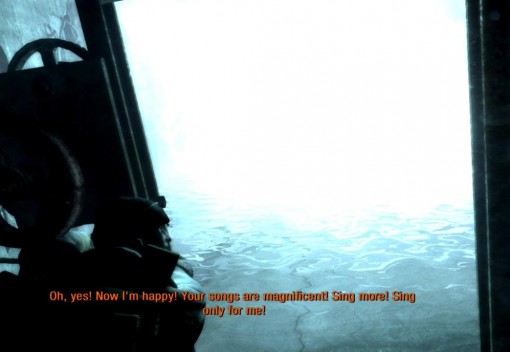










Other attempts to bring humanity to the shadows are ultimately more laughable than they are compelling. In Metro 2033, you encounter a little boy who, like so many children in video games, neither looks nor sounds like a boy but instead like a miniature adult doing his best impersonation of a kindergartner. The following sequence, in which your movement is hindered because you must carry the child, would have been tense were it not for the the unrealistic way your ward speaks, acts, and moves. Metro: Last Light, in the meanwhile, raises its supernatural stakes during the final third with a gameplay hook that isn't to everyone's taste. I am still moved by the events that follow, and by the way Artyom acts as a conduit between forces that don't understand each other. Yet I can't help but recognize that many of the game's most poignant moments come by way of the metro's residents and their stubborn refusal to succumb to travesty. The later moments feel more forced and manipulative, less about the needs of those that suffer and more about the needs of the writers to lead the game to its natural and heavily foreshadowed conclusion.
Then again, Metro Redux isn't really about any one of these people--not Artyom, not any so-called Dark One, not Bourbon, and certainly not any of the game's few women, most of whom exist as entertainment for men, whether as can-can dancers or as naked silhouettes. No, this compilation is about a place. It's a place where you can hear the laughter of children long since dead, and the screams of aircraft passengers moments before their incineration. It's a place where you must fear both the hideous mutants that prowl as well as humankind--and yet it's only with humankind that you might find safety. It's that ebb and flow, that movement in and out of danger, and the panic you feel when danger finds you even when you think you should be most at peace, that makes Metro Redux such an excellent tour through the best and worst of a society in ruins.


